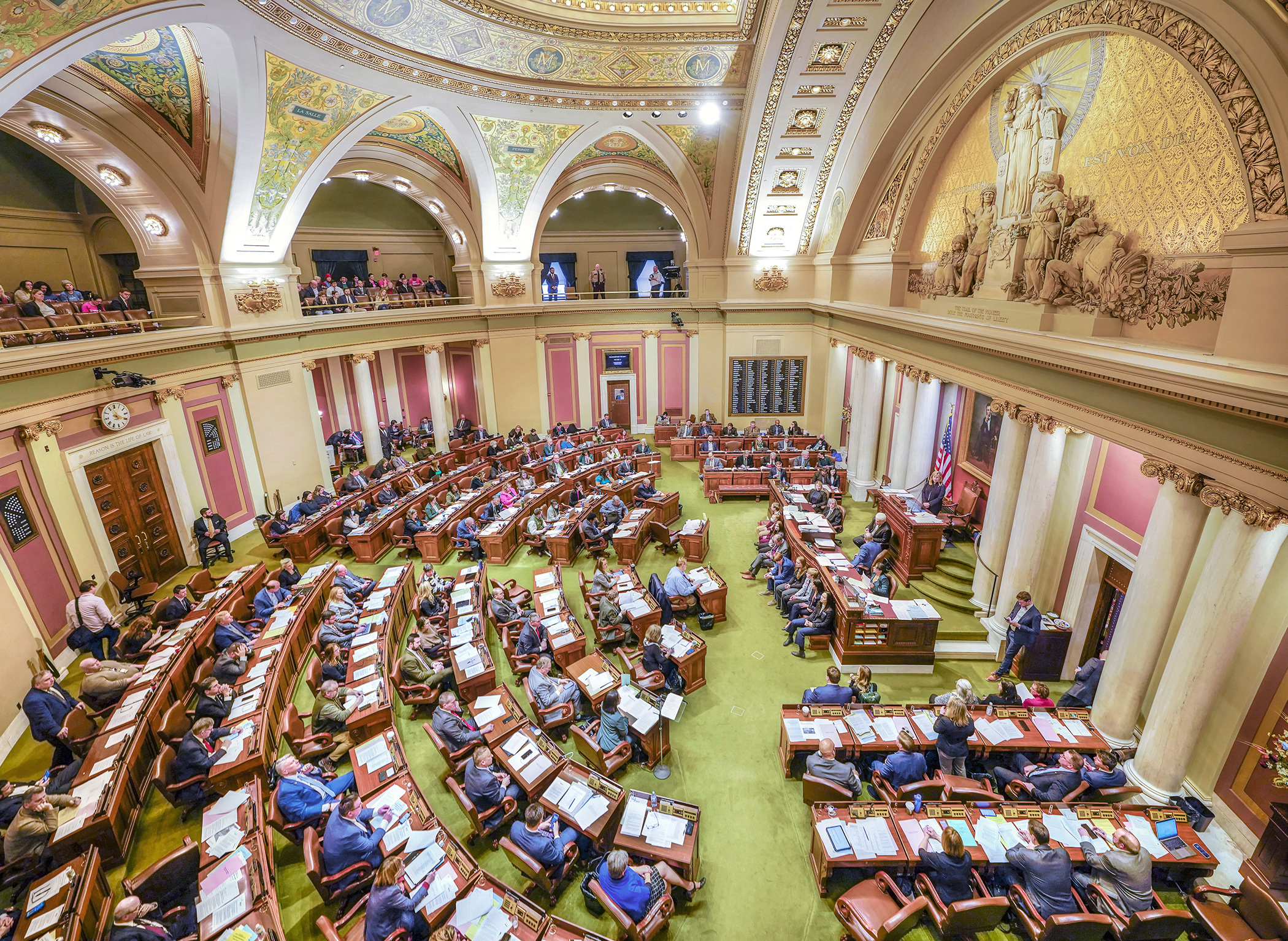House votes to raise reimbursement rates for child care providers

Minnesota has one of the lowest reimbursement rates in the country for providers who take part in a widely used program that helps low-income families afford child care.
That would change under HF13, passed by the House 69-59 on Monday and sent to the Senate.
Sponsored by Rep. Dave Pinto (DFL-St. Paul), the bill would raise reimbursement rates for providers in the Child Care Assistance Program and appropriate over $350 million during the upcoming biennium to pay for that care.
“HF13 gets our rates up to where they are supposed to be,” Pinto said.
CCAP works to help eligible families obtain child care while parents are working or in school. It is supervised by the state, administered by counties and tribes, and paid for with a combination of federal, state and local funds. The maximum amount participating child care providers can receive is based on a rate survey of Minnesota’s licensed providers that is statutorily required from the Department of Human Services every three years.
Based on the most recent survey, done in 2021, the maximum CCAP rates are currently set at the 40th percentile for infants and toddlers, and the 30th percentile for preschool and school-age children. The bill would raise the maximum reimbursement for all eligible children to 75% of the “most recent” survey which could mean more money for providers now, and in the future, as the rate would automatically update every three years going forward.
The bill would also appropriate $203.3 million during the upcoming biennium for the Minnesota Family Investment Program, which is a CCAP subprogram that describes itself as “the state’s welfare program for low-income families with children.”
And it would also appropriate $149.6 million in the upcoming biennium for Basic Sliding Fee grants, another CCAP subprogram that helps families pay for child care as they work, look for work, or go to school. It would set the base General Fund appropriation for that program at $91.5 million in fiscal year 2026 and $88.3 million in fiscal year 2027.
There is also language meant to increase CCAP’s integrity by changing how and when the Human Services Department may limit participation in the program and another provision to reprioritize program waiting lists to better serve families.
A number of Republicans voiced concerns about CCAP stemming from a 2019 report by the Office of the Legislative Auditor that found it lacked oversight and fraud was more pervasive than prosecutors could prove.
Rep. Anne Neu Brindley (R-North Branch) said those problems have yet to be fixed.
“This is a massive increase and the problem is after all these years we still have not gotten an answer,” she said. “… I implore members to vote against this bill.”
Rep. Laurie Pryor (DFL-Minnetonka) said working to support the child care industry is one of the most important things she will do in her life.
“This is, for me, what I will always care about,” Pryor said. “Because we know child care is in a crisis.”
Related Articles
Search Session Daily
Advanced Search OptionsPriority Dailies
Speaker Emerita Melissa Hortman, husband killed in attack
By HPIS Staff House Speaker Emerita Melissa Hortman (DFL-Brooklyn Park) and her husband, Mark, were fatally shot in their home early Saturday morning.
Gov. Tim Walz announced the news dur...
House Speaker Emerita Melissa Hortman (DFL-Brooklyn Park) and her husband, Mark, were fatally shot in their home early Saturday morning.
Gov. Tim Walz announced the news dur...
Lawmakers deliver budget bills to governor's desk in one-day special session
By Mike Cook About that talk of needing all 21 hours left in a legislative day to complete a special session?
House members were more than up to the challenge Monday. Beginning at 10 a.m...
About that talk of needing all 21 hours left in a legislative day to complete a special session?
House members were more than up to the challenge Monday. Beginning at 10 a.m...